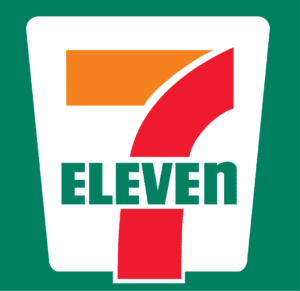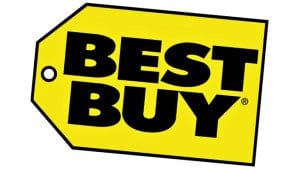 The spotted lanternfly is becoming a problem and states are beginning to lean on truckers to help them in their fight to control the pest. The spotted lanternfly is an invasive, plant-hopping pest that hitches rides on trucks and other vehicles. It is currently spreading along busy transportation corridors in the mid-Atlantic region, threatening billions of dollars-worth of commodities including grapes, hops, and hardwood. This is certainly not the first pest that has impeded crops, nor will it be the last. However, with the increase in cross-border commerce, these types of insects become more of a problem. The spotted lanternfly is a sap sucking insect, which can often be found swarming en-masse over an infested plant. Carriers picking up or delivering freight in quarantined parts of Pennsylvania, New Jersey, Delaware, and Virginia are being required to get permits certifying they have been trained to recognize and eliminate the insect, and in some cases could be fined for not meeting the demands. Just another thing to make cross-border shipping that much harder. And now on to this week’s logistics news.
The spotted lanternfly is becoming a problem and states are beginning to lean on truckers to help them in their fight to control the pest. The spotted lanternfly is an invasive, plant-hopping pest that hitches rides on trucks and other vehicles. It is currently spreading along busy transportation corridors in the mid-Atlantic region, threatening billions of dollars-worth of commodities including grapes, hops, and hardwood. This is certainly not the first pest that has impeded crops, nor will it be the last. However, with the increase in cross-border commerce, these types of insects become more of a problem. The spotted lanternfly is a sap sucking insect, which can often be found swarming en-masse over an infested plant. Carriers picking up or delivering freight in quarantined parts of Pennsylvania, New Jersey, Delaware, and Virginia are being required to get permits certifying they have been trained to recognize and eliminate the insect, and in some cases could be fined for not meeting the demands. Just another thing to make cross-border shipping that much harder. And now on to this week’s logistics news.
- Walmart in Mexico launches grocery orders via WhatsApp
- FedEx slashes two-day air prices to match ground rates to fill its planes
- Sam’s Club launches alcohol delivery through Instacart
- 7-Eleven expands 7NOW app delivery service to beaches, parks, hot spots
- Amazon adds Rite Aid locations to package delivery network
- Best Buy tries to deal with a glut of cardboard boxes
- Dwell time the top factor in carriers’ ratings of Uber Freight shippers and receivers
![]() As grocery delivery becomes big business, global companies are looking to ensure the right delivery model around the globe. Walmart Mexico has been looking for that “right” model and now appears ready to pounce. The company has begun offering grocery delivery from its Superama stores via messaging service WhatsApp. Owned by Facebook, the free messaging service WhatsApp has become commonplace in Mexico, which made it a great target for delivery. Superama charges 49 pesos ($2.55) for delivery within 90 minutes, or 39 pesos ($2.03) for a later delivery time and would accept payment in cash or by card upon delivery. Superama represents about 92 of Walmart’s 2,459 stores in Mexico. Superama already takes orders via its website and a Superama app, as well as through Cornershop, a third-party delivery app that sells goods for a variety of other stores. Walmart attempted to purchase Cornership earlier this month, but the sale was blocked by Mexico’s competition regulator.
As grocery delivery becomes big business, global companies are looking to ensure the right delivery model around the globe. Walmart Mexico has been looking for that “right” model and now appears ready to pounce. The company has begun offering grocery delivery from its Superama stores via messaging service WhatsApp. Owned by Facebook, the free messaging service WhatsApp has become commonplace in Mexico, which made it a great target for delivery. Superama charges 49 pesos ($2.55) for delivery within 90 minutes, or 39 pesos ($2.03) for a later delivery time and would accept payment in cash or by card upon delivery. Superama represents about 92 of Walmart’s 2,459 stores in Mexico. Superama already takes orders via its website and a Superama app, as well as through Cornershop, a third-party delivery app that sells goods for a variety of other stores. Walmart attempted to purchase Cornership earlier this month, but the sale was blocked by Mexico’s competition regulator.
 Two weeks ago, I mentioned the Costanzian break-up between FedEx Express and Amazon. Well, much like George’s pre-emptive break-up didn’t go down exactly like he thought it would, neither did FedEx’s. The company is offering big discounts to woo online merchants to its air network as it seeks to refashion a delivery system ill-equipped for the rise of e-commerce. FedEx is cutting prices for customers as well as offering guaranteed two-day air service for the same price as shipping items through its ground division. The move is in large part to try to grab market share from main rival UPS. It will be a very interesting story to watch as Amazon continues to grow its delivery network.
Two weeks ago, I mentioned the Costanzian break-up between FedEx Express and Amazon. Well, much like George’s pre-emptive break-up didn’t go down exactly like he thought it would, neither did FedEx’s. The company is offering big discounts to woo online merchants to its air network as it seeks to refashion a delivery system ill-equipped for the rise of e-commerce. FedEx is cutting prices for customers as well as offering guaranteed two-day air service for the same price as shipping items through its ground division. The move is in large part to try to grab market share from main rival UPS. It will be a very interesting story to watch as Amazon continues to grow its delivery network.
![]() Sam’s Club, which has undergone a dynamic shift in its business model, from home delivery to changing locations to Walmart delivery hubs, is making news again. This week, Sam’s Club announced that it is expanding into same-day alcohol delivery, which will be powered by Instacart. With the launch of the service, the states supporting alcohol delivery includes Florida, California, Missouri, Hawaii, Idaho, Illinois, Ohio, Wyoming, Connecticut, Texas, and Minnesota. However, not all clubs in those states will have alcohol delivery. To order alcohol, Sam’s Club members will need to order through the Instacart app or website. They’ll also obviously need to be 21 years of age and will need to present their government ID at the time of delivery.
Sam’s Club, which has undergone a dynamic shift in its business model, from home delivery to changing locations to Walmart delivery hubs, is making news again. This week, Sam’s Club announced that it is expanding into same-day alcohol delivery, which will be powered by Instacart. With the launch of the service, the states supporting alcohol delivery includes Florida, California, Missouri, Hawaii, Idaho, Illinois, Ohio, Wyoming, Connecticut, Texas, and Minnesota. However, not all clubs in those states will have alcohol delivery. To order alcohol, Sam’s Club members will need to order through the Instacart app or website. They’ll also obviously need to be 21 years of age and will need to present their government ID at the time of delivery.
 Summer hotspots for delivery are not a new thing. Domino’s Pizza for example, has been offering “hot spot” delivery to customers at beaches, pools, landmarks, and more for well over a year. 7-Eleven is jumping on the bandwagon, launching a service that lets customers order any of its products and have it delivered to a public place like a park or a beach. The retailer told The Associated Press that more than 2,000 7-Eleven “hot spots” including New York’s Central Park and Venice Beach in Los Angeles will be working, and customers need to download 7-Eleven’s 7NOW app and select “Show 7NOW Pins” to find a hot spot near them. The company says there’s no minimum order required. The same fees apply to both delivery services. The chain charges a flat delivery fee of $3.99. And for orders under $15, customers pay an extra $1.99.
Summer hotspots for delivery are not a new thing. Domino’s Pizza for example, has been offering “hot spot” delivery to customers at beaches, pools, landmarks, and more for well over a year. 7-Eleven is jumping on the bandwagon, launching a service that lets customers order any of its products and have it delivered to a public place like a park or a beach. The retailer told The Associated Press that more than 2,000 7-Eleven “hot spots” including New York’s Central Park and Venice Beach in Los Angeles will be working, and customers need to download 7-Eleven’s 7NOW app and select “Show 7NOW Pins” to find a hot spot near them. The company says there’s no minimum order required. The same fees apply to both delivery services. The chain charges a flat delivery fee of $3.99. And for orders under $15, customers pay an extra $1.99.
 There has been a lot of traction for Amazon adding retail stores as pick-up options as well as returns management locations (see Kohl’s). And the company is certainly not slowing down. This week Amazon announced another partnership for customer package pick-up: Rite Aid. Amazon announced this week that customers will be able to pick up purchases at specialized counters in more than 1,500 Rite Aid locations by the end of the year. This is just Amazon’s latest effort to partner with nationwide retailers to help expand its delivery footprint while increasing in-store traffic for a trusted partner. Customers living near eligible stores will see in-store pickup as an option when they check out and pay for their items on Amazon.com. Shoppers will have two weeks to pick up their orders at the location, where staff members will handle orders at counters that feature Amazon branding.
There has been a lot of traction for Amazon adding retail stores as pick-up options as well as returns management locations (see Kohl’s). And the company is certainly not slowing down. This week Amazon announced another partnership for customer package pick-up: Rite Aid. Amazon announced this week that customers will be able to pick up purchases at specialized counters in more than 1,500 Rite Aid locations by the end of the year. This is just Amazon’s latest effort to partner with nationwide retailers to help expand its delivery footprint while increasing in-store traffic for a trusted partner. Customers living near eligible stores will see in-store pickup as an option when they check out and pay for their items on Amazon.com. Shoppers will have two weeks to pick up their orders at the location, where staff members will handle orders at counters that feature Amazon branding.
 E-commerce is certainly creating a lot more business, but at the same time, it is creating a lot more waste. This is mainly due to the impractical packaging of goods shipped to our houses. Well, Best Buy is investing in technology to reduce the extra packaging that can easily overwhelm the average customer. The company is using machines that custom build ready-to ship boxes at a clip of up to 15 boxes per minute. The boxes can be made for video games, headphones, printers, iPad cases — anything less than 31 inches wide. The goal is to eliminate wasteful packaging, including bubble wrap and extra padding, which can create a lot of “air shipments.” Sensors measure the size of the package, and a packing slip gets inserted just before the cardboard gets cut and neatly folded around the item. The boxes are fastened with glue rather than tape, and the machine makes a perforated edge at one end to make it easier for customers to open.
E-commerce is certainly creating a lot more business, but at the same time, it is creating a lot more waste. This is mainly due to the impractical packaging of goods shipped to our houses. Well, Best Buy is investing in technology to reduce the extra packaging that can easily overwhelm the average customer. The company is using machines that custom build ready-to ship boxes at a clip of up to 15 boxes per minute. The boxes can be made for video games, headphones, printers, iPad cases — anything less than 31 inches wide. The goal is to eliminate wasteful packaging, including bubble wrap and extra padding, which can create a lot of “air shipments.” Sensors measure the size of the package, and a packing slip gets inserted just before the cardboard gets cut and neatly folded around the item. The boxes are fastened with glue rather than tape, and the machine makes a perforated edge at one end to make it easier for customers to open.
Uber Freight’s freight-matching platform has gained a lot of attention over the last year or so. The big question has been whether a digital freight matching platform can succeed, based on other industry constraints. Well, considering that many large TMS providers have begun integrating DFM platforms into their applications, it appears as thought the answer is yes. Uber has released its first insights report to see what its customers are saying, and not surprising, dwell times are top of mind. Dwell times have a major influence over whether drivers will return to a specific facility or work with a specific location. Like Uber’s ride-sharing service, Uber Freight allows drivers to rate those with whom they do business via a five-star rating program. Uber’s shipper customers have access to the ratings, as do drivers, who can use the ratings to determine whether they want to take a load from that shipper.
That’s all for this week. I’m dedicating the song of the week in memory of my late neighbor and friend who introduced me to the Who and the three-point contest.

















